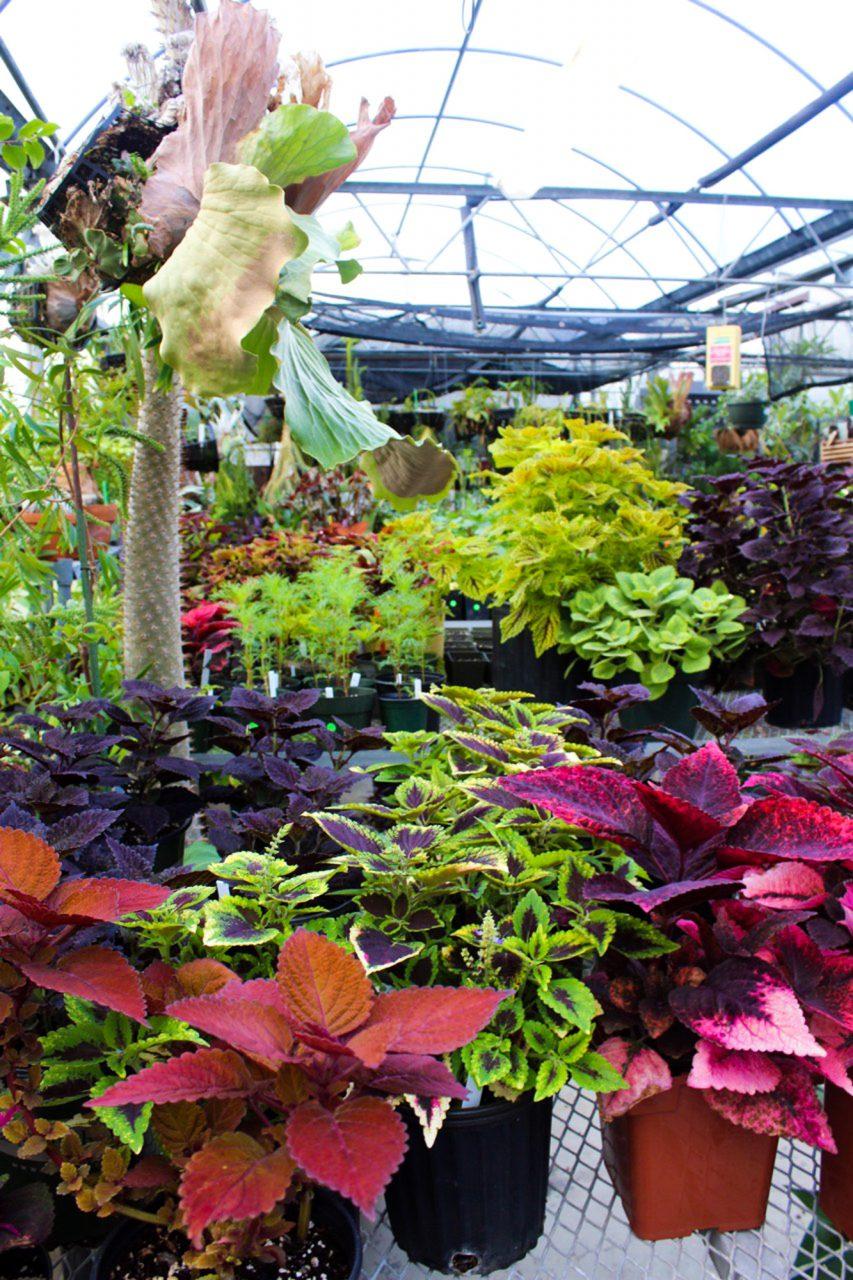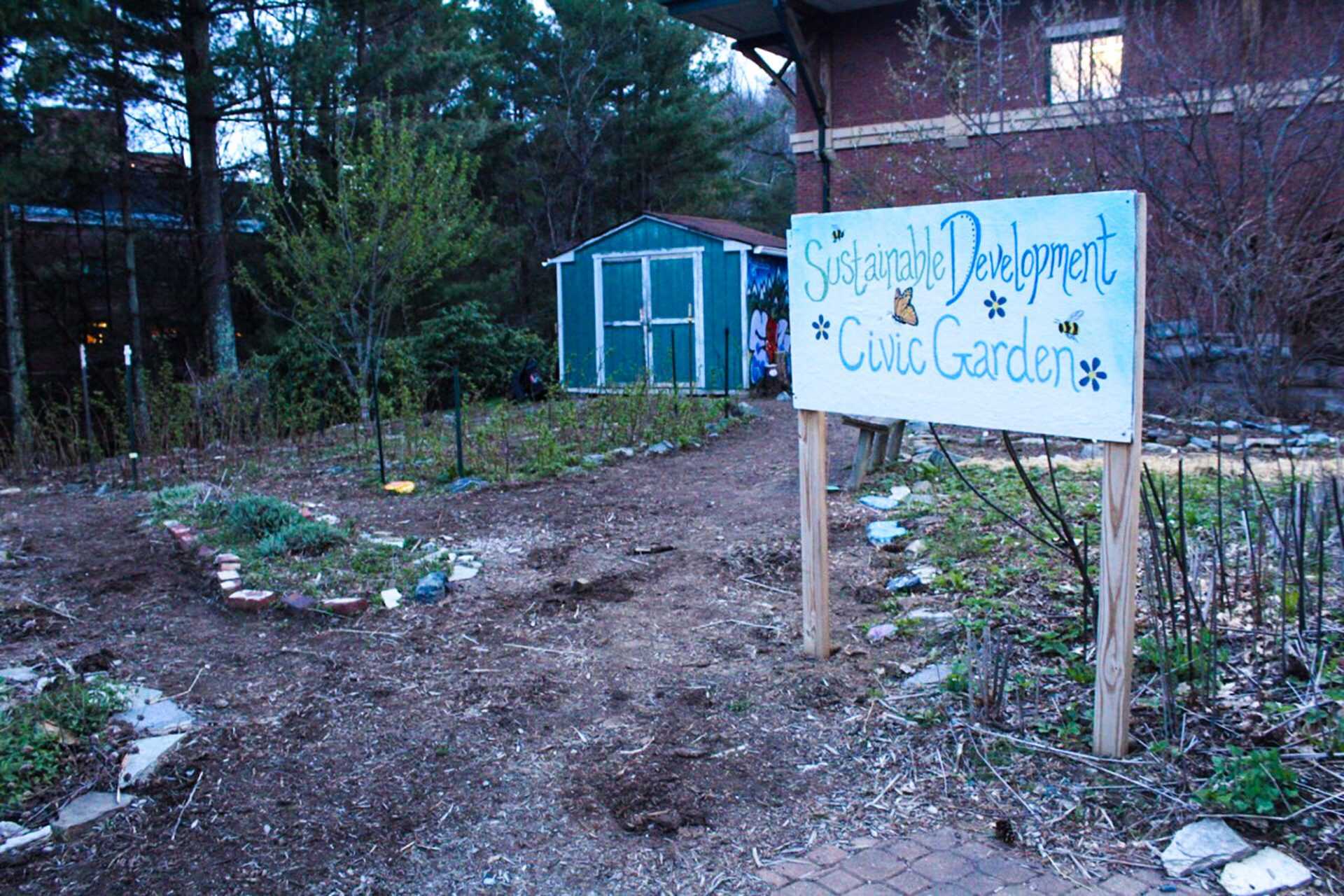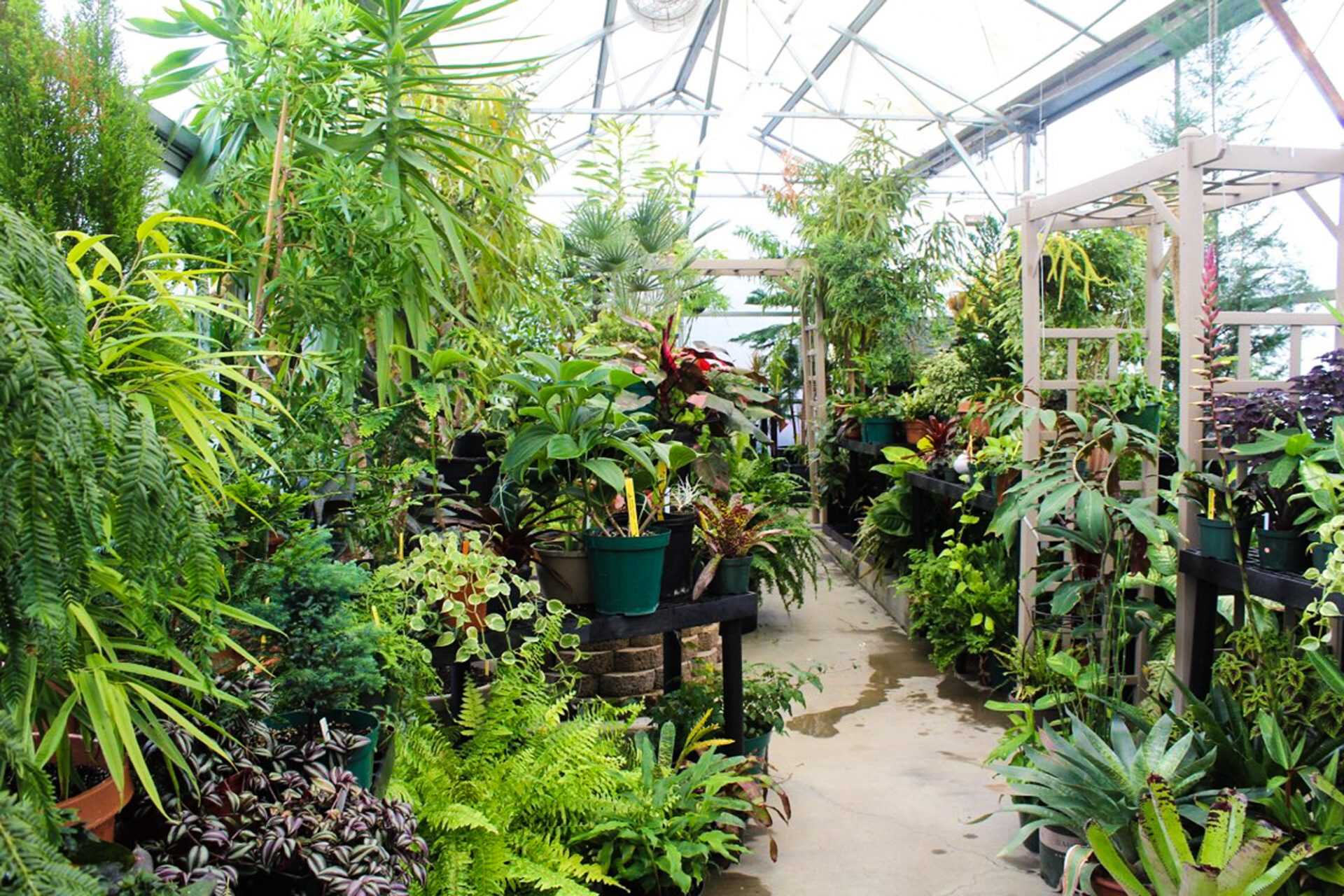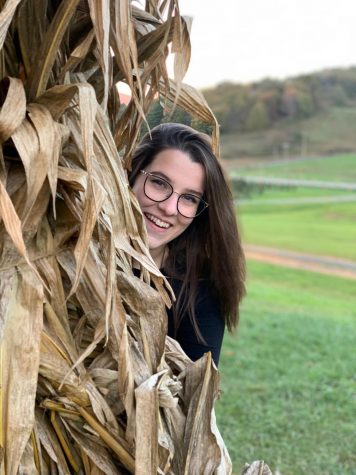Appalachian State has three main green spaces for students to practice their hand in botany and gardening.
The oldest of the three places, the Biology Greenhouse, is home to 1,200 plant species with every country around the world represented, greenhouse manager Jerry Meyer said.
The Biology Greenhouse requires a lot of research from the greenhouse manager to ensure that such a diverse group of plants can be added and maintained.
“I spend probably a couple hours a week looking for nurseries that sell something unusual,” Meyer said. “I can make plants from Africa and Singapore grow in the same part of the building as long you know what you’re doing.”
Located off of State Farm Road, the Biology Greenhouse contains not only the main greenhouse area that houses plants, but also two research rooms and a classroom for professors to teach in.

The greenhouse hosts biology labs and classes for the community, according to the greenhouse’s website. The greenhouse is also used to grow plants that will later be used for labs that happen on campus.
“About four or five classes come down here a semester, but a typical use for the plant material here is for me to deliver to places on campus rather than vice versa,” Meyer said.
The greenhouse also has an average of 20 volunteers per semester to help out Meyer and get more experience in Botany.
“Many students here have left with more knowledge of plants than they would have merely taking the few classes we do offer on campus,” Meyer said.
Anyone interested in plants is allowed to volunteer at the greenhouse, according to the greenhouse website. These volunteers help to keep track and take care of all of the plants in the greenhouse.
With such diversity in plant life and the constantly changing Boone weather, each individual plant must be taken care of to make sure the plant’s needs can be met, Meyer said.
The greenhouse also sells many of the plants that are grown there in two different plant sales. The larger of the two happens in the summer, right after school gets out.
The greenhouse uses the money earned from selling the plants for reparations around the building, Meyer said.
Appalachian State also has two outside gardens that are used by faculty, students and members of the Boone community alike.
The Sustainable Development Civic Garden is located right outside of the Living Learning Center.
“The garden has been around for about 12 years now and is the oldest garden on campus,” campus garden manager and adjunct biology instructor Julia Showalter said.
The Sustainable Development Civic Garden has several areas to plant a variety of vegetables, fruits and herbs. The garden also includes a solar powered greenhouse and a compost education center, according to the garden website.

The Sustainable Development Civic Garden greenhouse is made from cob, an ancient building material similar to adobe, that is made with clay and straw.
“The whole structure is basically made of mud,” Showalter said.
The plants grown in this garden are used as both a teaching resource and a donation.
Certain plants are specifically grown so that the seeds can be donated to the seed library at the Watauga Public Library for seed saving. Two specific plots are set aside to grow food that is donated to the food hub and is distributed to places around Boone, Showalter said.
The garden also has an adopt-a-plot program that allows community members to rent out plots of the garden to use their green thumb over the summer, according to the garden website.
There are always resources and opportunities for people to help out around the garden. Gardening and sustainable development classes are available for members of the Boone community and students and faculty from the school. These classes involve helping in the garden. There are also volunteers that will do a lot of work, Showalter said.
The newest addition to Appalachian’s green spaces is the Appalachian Roots Garden located on East Howard Street.
Created last summer, the Appalachian Roots Garden has a variety of spaces for plant growth, but also includes areas to practice sustainable development, senior community and regional planning major Nick Oreilly said.
As a community planning intern, Oreilly spent last summer working on the Appalachian Roots Garden in its early stages of development.
The Appalachian Roots Garden has similar uses to the Sustainable Development Civic Garden, ranging from seed-saving, to adopt-a-plot, to even food donations, according to the Sustainable Development website.
The garden is kept up by many volunteers. Due to its location, even children from the Lucy Brock Child Development Laboratory School have come to learn about planting, according to the Sustainable Development website.
As part of the volunteer network for these gardens, the Gardening Club is one way to get involved in these green spaces around campus. By helping out in the gardens students learn not only about gardening tactics, but also about sustainable farming techniques, according to the Gardening Club website.
“Gardening Club provides many opportunities for people to get involved and do service work in the gardens as well as help other gardens around Watauga County,” Oreilly said.
Overall, whether it be a student in a biology lab, a volunteering Boone native or a member of the Gardening Club, anyone can get involved with the green spaces on campus.
Story by: Mariah Reneau, Associate A&E Editor
Photos by: Veronica Hayes, Staff Photographer
Featured Photo Caption: The Appalachian State Biology Greenhouse is located off of State Farm Road. Its conservatory contains over 900 plant species.


